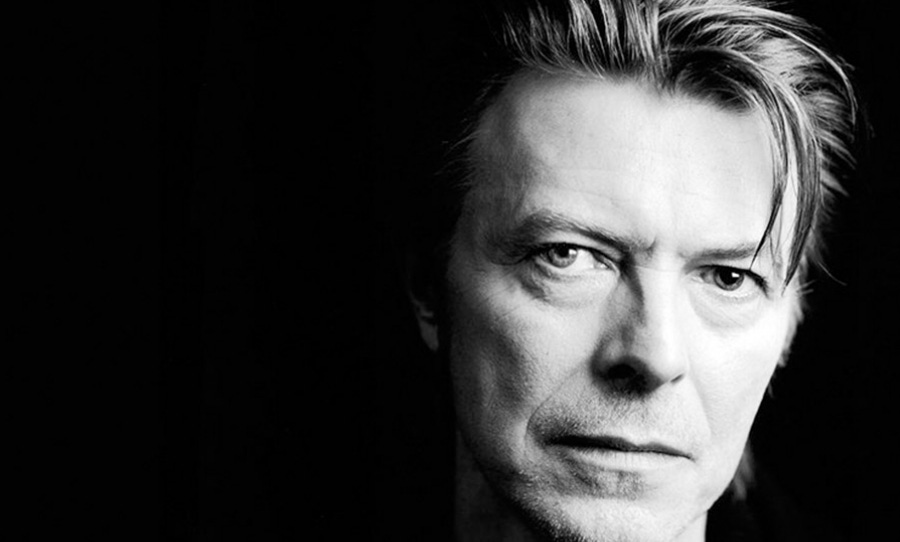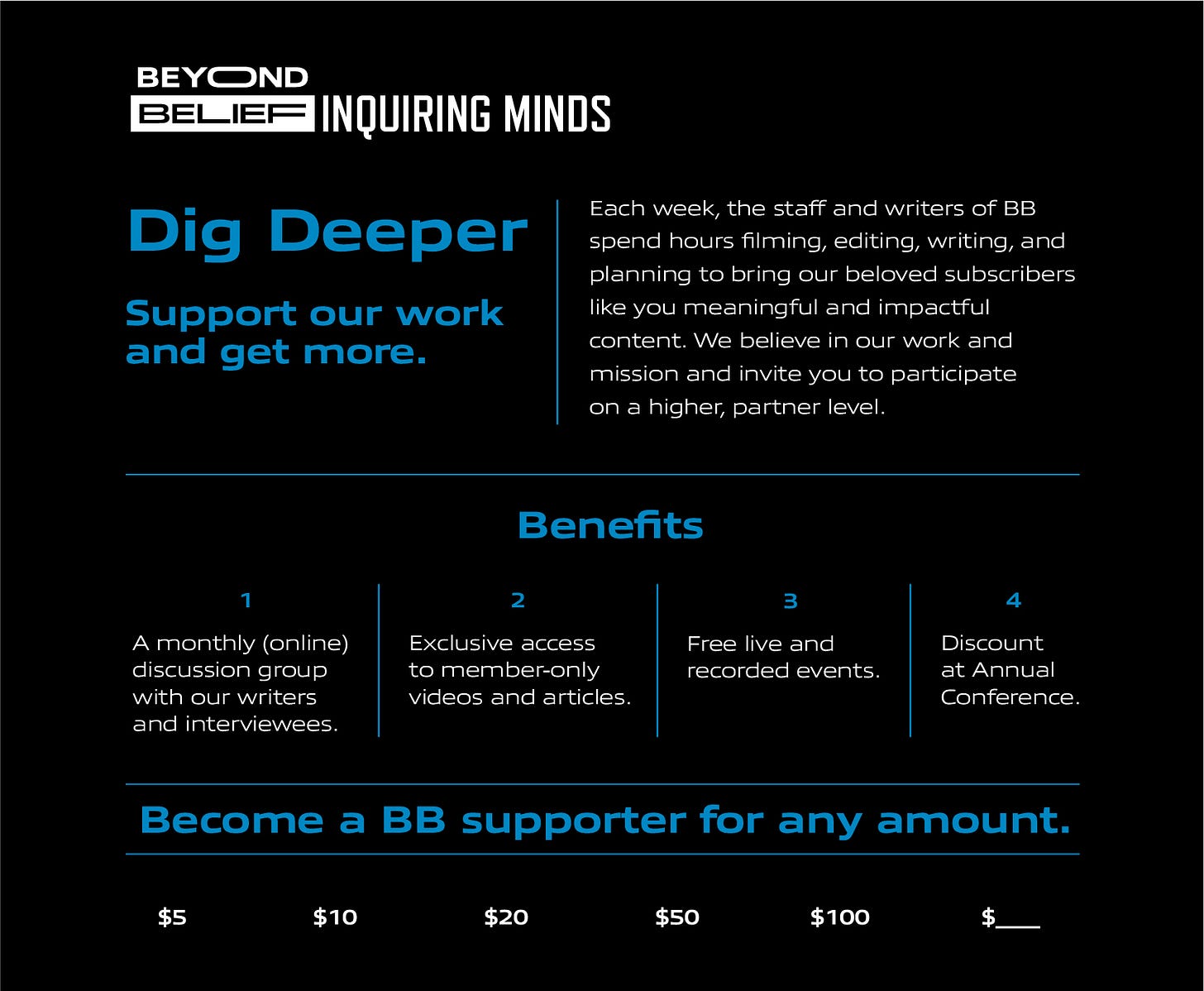Transcript
Well, hello all, and welcome to episode 42 of the Secret Chord Podcast. I'm delighted today to be able to discuss the music of one of my all-time favorite artists. His name is David Bowie and he is someone that I always felt was part of my life ever since I was a little kid. I was always aware of his music though the first time it really hit me was when I heard his tune Let's Dance when I Was a Kid, and that was such a great song and there were several great songs on that album, which were all over MTV at the time. From that day forward, I was hooked.
So who is David Bowie? He was born David Robert Jones on the 8th of January, 1947. Of course, he's better known by a stage name David Bowie, which he picked because there was another guy named David Jones who was actually in The Monkeys and I didn't want to have the same name.
So he was a leading figure in the music industry and is considered one of the most influential musicians of the 20th century. He was acclaimed by critics and musicians, particularly for his innovative work during the seventies. His career was marked by a reinvention and visual presentation with his music and stagecraft having a significant impact on popular music during his lifetime. His record sales estimated at over 100 million records worldwide made him one of the world's bestselling music artists in the UK.
He was awarded 10 Platinum album certifications, 11 gold and eight silver, and released 11 number-one albums in the us. He was inducted into the Rock and Roll Hall of Fame in 1996 and Rolling Stone placed him among its list of the 100 greatest artists of all time and, following his death in 2016, David Bowie was dubbed the Greatest Rock Star ever by Rolling Stone Magazine.
One of the interesting features of David's music is what I would call its in-betweenness. Same thing with his persona. He's sort of male, sort of female. He's rock glam, pop, show tune, crooner. What is he exactly? Old, young, spiritual, not spiritual. I think that this neither here nor there quality that he had was best exemplified by his song Station to Station released by RCA Records in 1976. This album, which was also called Station to Station, is regarded as one of his most significant works. It was the vehicle for his performance persona, the Thin White Duke, and he had a bunch of those personas.
Station to Station has been described as simultaneously one of Bowie's most accessible albums and his most impenetrable. Let's have a listen to the title track now. This is Station to Station by the great David Bowie:
That is such a cool song. At over 10 minutes in length, it's Bowie's longest studio recording, opening with these train-like noises. The song's first half is a slow march built around a tonal guitar riff while the second half takes the form of a progressive disco suite in a different key and tiempo than the first. It contains elements of art rock and is influenced by the German electronic bands Kraftwork and Tangerine Dream.
As we've mentioned, David was always in between, always moving on to the next place or the next persona from Ziggy Stardust to Aladdin Sane to the Thin White Duke and others. He was not someone who got too comfortable in one place. In my estimation, this is a very spiritual way to be. The spiritual seekers may take pleasure where they are at any given moment, but they're never satisfied. In this sense, people are more like verbs than nouns. They are entities that are actively engaged in doing something, becoming something new.
It often takes a good deal of courage to abandon what you've always been and to grow into a new and hopefully higher incarnation of yourself. But the simple freedom to do that is critical. He references this in the song when he says, “Got to keep searching and searching, oh, what will I be believing and who will connect me with love?” This song also contains the only overt reference to Kabbalah that I've ever heard in rock and roll. He says, “Here we are. One magical movement from Keter to Malchut.” This is referring to the 10 primal energy sources that Kabbalah says are the blueprint of reality. The reference suggests going from one end all the way to the other and arriving at a final destination.
Over the years, Bowie made numerous references to religions and to his evolving spirituality. Beginning in 1967, he became interested in Buddhism and considered becoming a Buddhist monk. After a few months study at Tibet house in London, he was told by a llama, you don't want to be a Buddhist. You should follow music. By 1975, though he admitted, “I felt totally, absolutely alone and I probably was alone because I pretty much had abandoned God.” I wonder though if he did in fact abandon God. Sometimes the true test comes to the very end and I think we have some hints in David's death that could suggest he wrapped up his time here in a spiritual way.
On January 10th, 2016, two days after his 69th birthday and the release of his album, Black Star, David Bowie died from liver cancer in his New York City apartment. He had been diagnosed 18 months earlier but had not made the news of his illness public. The Belgian theater director, Ivo van Hove, who had worked with the singer on his off-Broadway musical, Lazarus explained that Bowie was unable to attend rehearsals due to the progression of the illness. He noted that Bowie had kept working during the illness.
But's producer Tony Visconti wrote,
He always did what he wanted to do and he wanted to do it his way and he wanted to do it the best way. His death was no different from his life, a work of art. He made Black Star for us as his parting gift. I knew for a year that this was the way it would be. I wasn't however prepared for it. He was an extraordinary man full of love and life. He will always be with us.
For now, it's appropriate to cry, and let's hear a great song off of that final album. This is Lazarus by the great, David Bowie:
That is just a fantastic piece of music. Let's start by acknowledging how impressive a feat this was recording this as a six 68-year-old man and it's great. After 50 years of making records, he was still relevant, still good. This is a profound piece of art from the lyrics and from the video. If you've seen it, this is David's statement on his impending demise. Listening to the horns, you can hear the sadness, a surrealism as to what's happening to him, but in the guitars, I hear a defiance, a passion that won't concede his fate and his voice, despite losing some of the intensity of his youth, is still moving and still strong.
He says, “Look up here. I'm in heaven. I've got scars that can't be seen. I've got drama. Can't be stolen. Everybody knows me now.” David here is addressing us from the hereafter. He acknowledges some of the pain and struggle, but concludes, “Oh, I'll be free. Just that Bluebird.” This is deep stuff, and I subjectively think that his back-and-forth struggle, his station to station in-betweenness ended with his belief in heaven and the spiritual order, and though I can't prove it, there have been other indications from other times in his career.
In 1993, David said he had “an undying belief in the unquestionable existence of God.” Earlier that year, he knelt on stage at the Freddie Mercury tribute concert and recited the Lord's Prayer before 72,000 fans at Wembley Stadium and a worldwide television audience. He said:
I decided to do it about five minutes before I went on stage. In rock music, especially in the performance arena, there's no room for prayer, but I think that so many of the songs people write are prayers. A lot of my songs seem to be prayers for unity within myself.
That's a deep thing to say. And speaking of David's prayers, our main feature today captures him in a pretty overtly prayerful mood, and while it may have made more sense chronologically to conclude this Bowie exploration with Lazarus, I wanted to end on a more upbeat note, pun intended. This is Word on a Wing once again by the great David Bowie:
This is a beautiful and unique ballad. It's not really a rock song and I'm not sure how to categorize it. It's just classic Bowie—his own thing and different from much of his other work. One feature of his work that I'd like to just note is that I often find his bridges, the transitional music between the verses, and the choruses to be particularly compelling when he does it. It's not just filler, but it's really moving the song forward and developing it.
As far as the lyrics go, this one seems pretty overtly spiritual to me. He says, “Just because I believe don't mean that I don't think as well, don't have to question everything in heaven or hell.” Well, that's absolutely correct. In fact, I'd argue that one really needs to think in order to believe when considering authentic spirituality. It should be clear. I hope that it can't be based on the notion of blind faith. No one can accept (at least deep down) that for which they really have no evidence and contrary to what many think, there is plenty of compelling evidence for a non-material reality. David sings, “Lord, I kneel and offer you my word on a wing and I'm trying hard to fit among your scheme of things.”
I think this is a beautiful lyric. There's so much packed into it. There's humility as he bends a knee to a force that he doesn't fully understand but seems to want to connect to. There's an acceptance that there's the Almighty’s scheme of things, and then there's his own. He seems to acknowledge that he's the one who needs to adjust to be more aligned with him. Like the Mishna says, “Make your will His will so that He will make His will, your will.”
I also like the imagery of sending up words into the air and then having them fly off on their own to wherever they need to go. This is spiritual Bowie at his best. David knew that his cancer was getting the best of him and that he didn't have so much longer to continue his remarkable career. I'd like to think that in his last days, this restless ever-changing, brilliant musician found his peace and arrived joyfully at his final station.














